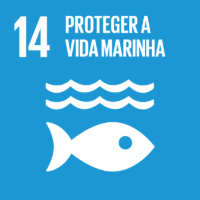Ciência_Iscte
Publicações
Descrição Detalhada da Publicação
Assessing the detection of floating plastic litter with advanced remote sensing technologies in a hydrodynamic test facility
Título Revista
Scientific Reports
Ano (publicação definitiva)
2024
Língua
Inglês
País
Reino Unido
Mais Informação
Web of Science®
Scopus
Google Scholar
Esta publicação não está indexada no Overton
Abstract/Resumo
Remote sensing technologies have the potential to support monitoring of floating plastic litter in aquatic environments. An experimental campaign was carried out in a large-scale hydrodynamic test facility to explore the detectability of floating plastics in ocean waves, comparing and contrasting different microwave and optical remote sensing technologies. The extensive experiments revealed that detection of plastics was feasible with microwave measurement techniques using X and Ku-bands with VV polarization at a plastic threshold concentration of 1 item/m2 or 1–10 g/m2. The optical measurements further revealed that spectral and polarization properties in the visible and infrared spectrum had diagnostic information unique to the floating plastics. This assessment presents a crucial step towards enabling the detection of aquatic plastics using advanced remote sensing technologies. We demonstrate that remote sensing has the potential for global targeting of plastic litter hotspots, which is needed for supporting effective clean-up efforts and scientific evidence-based policy making.
Agradecimentos/Acknowledgements
--
Palavras-chave
Classificação Fields of Science and Technology
- Engenharia Eletrotécnica, Eletrónica e Informática - Engenharia e Tecnologia
Registos de financiamentos
| Referência de financiamento | Entidade Financiadora |
|---|---|
| PID2021-126436OB-C21 | UPC |
Referências nos Media Relacionadas
Esta publicação está associada ao(s) registo(s) de referências nos media seguinte(s):
- 90 Segundos de Ciência (Antena 1)
Contribuições para os Objetivos do Desenvolvimento Sustentável das Nações Unidas
Com o objetivo de aumentar a investigação direcionada para o cumprimento dos Objetivos do Desenvolvimento Sustentável para 2030 das Nações Unidas, é disponibilizada no Ciência_Iscte a possibilidade de associação, quando aplicável, dos artigos científicos aos Objetivos do Desenvolvimento Sustentável. Estes são os Objetivos do Desenvolvimento Sustentável identificados pelo(s) autor(es) para esta publicação. Para uma informação detalhada dos Objetivos do Desenvolvimento Sustentável, clique aqui.

 English
English



